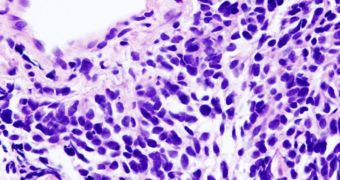In people who have been longtime smokers, quitting the habit at a moment's notice, and without too much trouble may in fact be a bad sign. Experts have tied this type of spontaneous behavior to the onset and detection of lung cancer in these patients.
In fact, some oncology specialists even propose that this can be interpreted as a sign that lung cancer is about to appear. The lack of effort in ceasing a habit that has been going on for decades can be construed as an indicator that something is wrong, and even as a symptom.
Some scientists even believe that one of the earliest signs that the disease is oncoming is the lack of appetite for cigarettes and tobacco. The fact that many lung cancer patients stop smoking just before they are diagnosed is notorious in the medical community.
Most longtime smokers who have the strength to quit their addiction after decades of indulging in it, and experience no difficulty in doing so, are at increased risk of lung cancer, experts propose.
The study proposing this appears in the March issue of the esteemed scientific Journal of Thoracic Oncology (JTO), the official monthly publication of the International Association for the Study of Lung Cancer (IASLC).
“It is widely known that many lung cancer patients have stopped smoking before diagnosis. This observation is often dismissed, by saying that these patients must have quit because of symptoms of their cancer,” Dr. Barbara Campling says.
“However, we found that the majority of lung cancer patients who stopped smoking before diagnosis quit before the onset of symptoms,” she goes on to explains.
“Furthermore, they often quit with no difficulty, despite multiple previous unsuccessful quit attempts. This has led us to speculate that, in some cases, spontaneous smoking cessation may be an early symptom of lung cancer,” the expert adds.
Campling holds an appointment as a professor in the Department of Medical Oncology at the Thomas Jefferson University, in Philadelphia, Science Blog reports.
“There is a danger that this study could be misinterpreted as suggesting that heavy smokers should continue smoking. We emphasize that all smokers must be strongly encouraged to stop,” she says.
The study revealed that heavy smokers who quit without effort were diagnosed with lung cancer within 2.7 years after ceasing to smoke. One possible explanation for this mechanism is that developing tumors secrete a chemical that may interfere with nicotine addiction.

 14 DAY TRIAL //
14 DAY TRIAL //